
OR
Those who started living in Kathmandu three years ago may have taken uninterrupted power supply at their homes for granted. Nepali households in Kathmandu and many parts of the country outside the valley have enjoyed uninterrupted power supply for quite a few years. This has benefitted the manufacturing industries most and things are much easier now than in the past. But think of the days before 2015, when students had to prepare for their exams sitting under candle lights, when watching television was a luxury only those who had inverter batteries installed in their households could afford. Lest we forget, we were made to live in darkness for as many as 18 hours a day in a country with abundant resources to generate hydro power. All this changed around November of 2015. Kathmandu residents found power being supplied to their houses round the clock and gradually this became the reality for people living outside of the valley as well. Of course, there is more than one factor behind this change. Some major power projects got completed and we also imported additional power from India. But there was one man behind this change: Kul Man Ghising, Managing Director of Nepal Electricity Authority.
Soon after Ghising took office, he initiated one after other measures to improve NEA bureaucracy and enhance NEA management. He booked those found to illegally supply power to certain industries while keeping many other households in the dark. He stopped electricity leakage and presented himself strongly against defaulters. With the reforms he initiated, people not only found power in their homes but NEA also started to earn profit. But Ghising, who is also seen as man of light by many in Nepal, is often dragged into needless controversy. He is accused of indulging in corruption, which facts often disprove of and, at times, is threatened to be removed from office. In recent such allegation, lawmaker and member of parliament’s Public Accounts Committee Aman Lal Modi accused Ghising of embezzling billions of rupees in the name of collecting pending taxes from industrialists who have been using dedicated feeder and trunk line from the power utility. Modi claims that NEA is involved in policy corruption in different projects, including in 25-megawatt solar plant project and Koshi Corridor Transmission Line Project. Ghising has refuted this claim outright. Addressing the meeting of Public Accounts Committee he challenged the lawmakers to prove corruption charges against him and declared that he was “ready to be hanged” if he was “proved guilty.” Instead, he claimed that lawmakers of various constituencies have been obstructing development activities. This allegation follows Ghising’s intervention in booking people involved in obstruction of Trishuli Three B Project.
Modi’s allegation needs to be read with skepticism because he himself is allegedly involved in obstruction of NEA’s works. According to reports, NEA has already completed construction of Katahari Subs-station of Morang district for over two months now to ensure power supply in Katahari area. But locals from Gramtham Rural Municipality, which is also the constituency of Modi, have obstructed transmission line works, apparently under Modi’s directive. Modi is against building transmission lines up to Katahari apparently to avenge the industrialists of that area for not supporting him during the election. Thus there is something fishy in Modi’s allegation. If Kul Man has erred, he should be questioned but so far his involvement in any kind of wrongdoing has not been established. He is regarded as an efficient bureaucrat and a symbol of honesty and efficiency. Such a person should not be harassed with unsubstantiated allegations. In fact, we need more bureaucrats like Kul Man Ghising in Nepal. Under his leadership, load-shedding became a history in Nepal and he is also actively pursuing NEA’s other power projects. Such a person should be allowed to work unhindered.
You May Like This
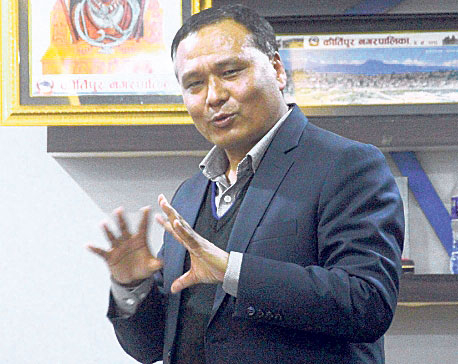
NEA MD to travel to Upper Tamakoshi project site every month
KATHMANDU, March 25: Managing Director of Nepal Electricity Authority Kulman Ghising will be travelling to Upper Tamakoshi project site in... Read More...
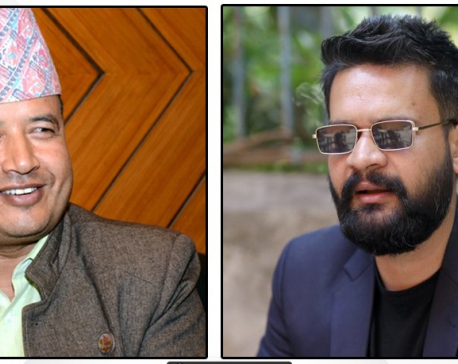
UML leader Basnet to Balen: Don't be pampered just because you have a few hundred fans on Facebook
KATHMANDU, August 26: While the Mayor of Kathmandu Metropolitan City (KMC), Balendra Shah, is speeding up the work to demolish... Read More...

Make Nepal shine in Davos
Prime Minister K P Sharma Oli left for Davos, Switzerland on Sunday for the annual meeting of the World Economic... Read More...


Just In
- Capital Market Struggle Committee stages protest demanding protection of domestic investors (Photo Feature)
- Captain Paudel scores half-century in T20 match against West Indies 'A'
- Nine youths from Tanahu allegedly joining Russian army out of family contact for months
- West Indies 'A' sets Nepal a target of 205 runs
- Parliamentary committee directs govt to provide electricity tariff subsidies to cold storage facilities
- Former DoTM employee Bhatta arrested in connection with illegal license issuance case
- One killed in a fire incident in Dadeldhura
- JSP Central Executive Committee meeting being held today to discuss national convention representative election guidelines









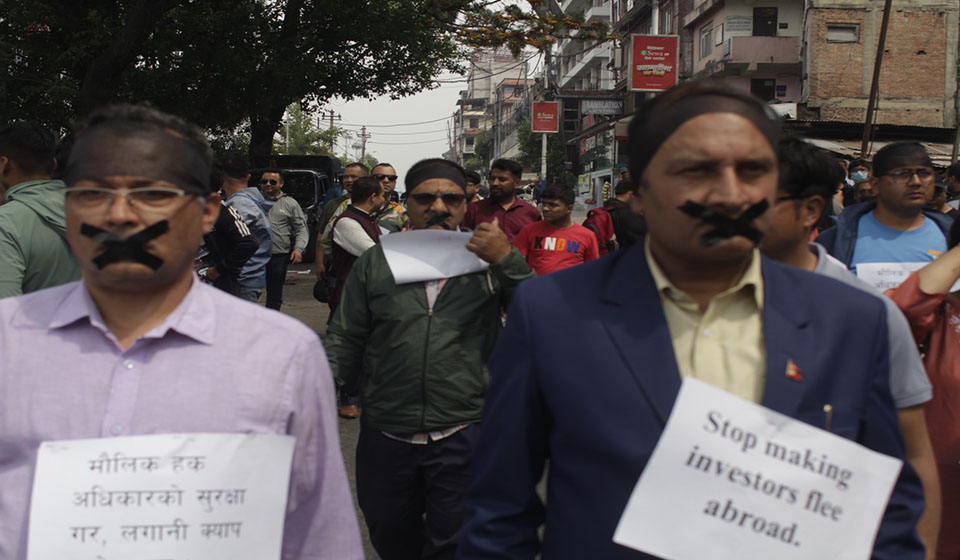



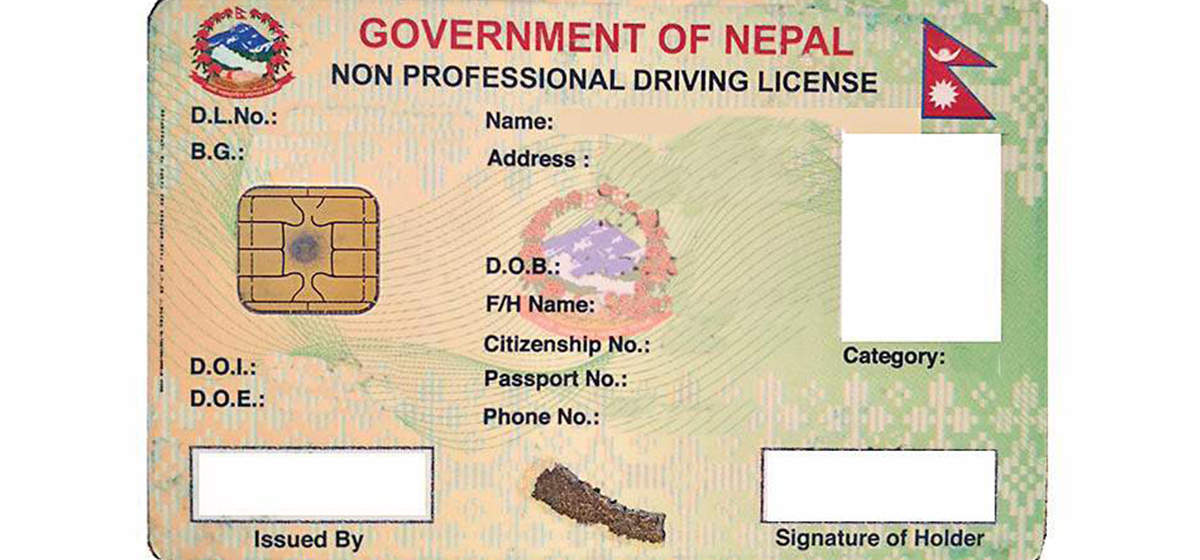

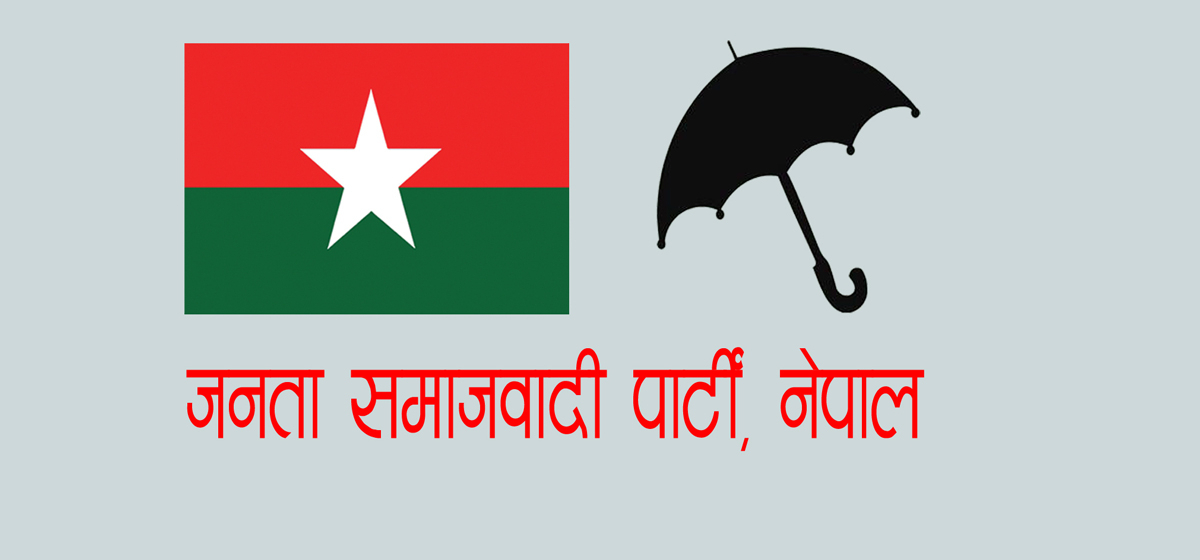
Leave A Comment